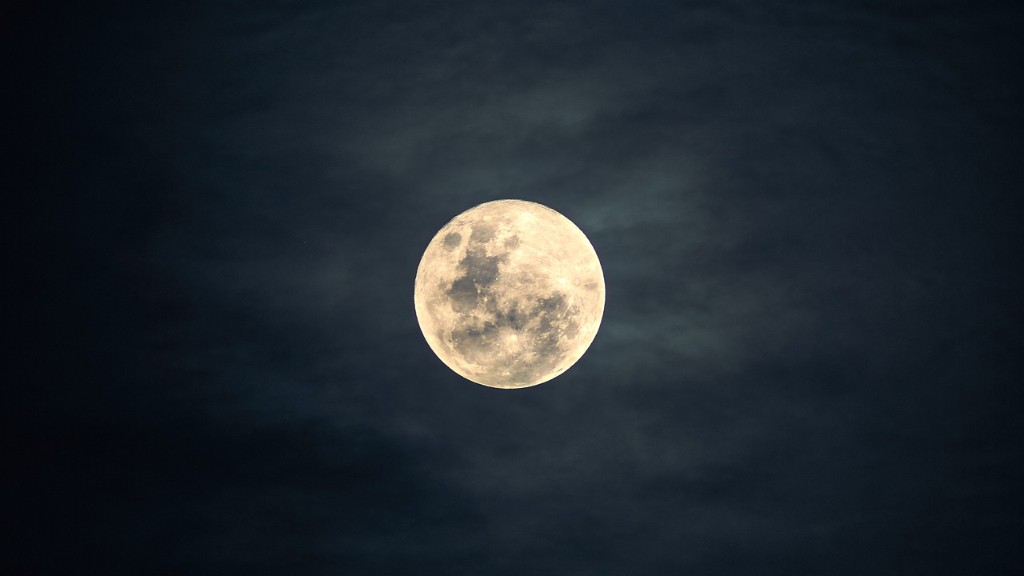There are a few possible explanations for why people forget their dreams when they wake up. One possibility is that dreams are processed in a different part of the brain than waking thoughts, so they are harder to access. Another possibility is that dreams are not as important to our mental lives as waking thoughts, so they are more likely to be forgotten. Whatever the reason, forgetting dreams is a common experience.
The phenomenon of forgetting dreams occurs for a variety of reasons. One theory is that during sleep, dreams are stored in the hippocampus, but during waking hours, the hippocampus works to consolidate memories of real-life events into long-term memory—and in the process, dreams may be “overwritten.” another possibility is that we simply don’t pay attention to our dreams, so we forget them. It’s also worth noting that some people seem to have better dream recall than others.
Why do we forget dreams when we wake up?
REM sleep is the sleep stage when most dreams occur. MCH cells are turned on during REM sleep and are thought to play a role in dream content. Therefore, activation of MCH cells may prevent dreams from being stored in the hippocampus, resulting in the dream being quickly forgotten.
It’s normal to forget your dreams when you wake up. Dreams are encoded in a fragile memory state and quickly fade.
What to do when you forget your dreams
There are a few things you can do to remember your dreams:
1. Make it a habit to remember your dreams each morning.
2. Maintain a dream journal every morning after you wake up.
3. Schedule your sleep for a consistent sleep cycle.
4. Break out of your daily routine to allow new dreams to remember.
5. Ensure you’re comfortable and can achieve deep sleep.
If you want to resume and remember a good dream, just lie still when you wake up. If you stay still, you may be able to drift back into a dreamlike state for several minutes. This will give you a chance to remember your dream better.
Do blind people dream?
Blind people may not have as much visual dream content as sighted people, but their other senses are enhanced in dreams. They are more likely to experience sensations of sound, touch, taste, and smell than sighted people. Blind people are also more likely to have certain types of dreams than sighted people.
REM atonia is a phenomenon that occurs during REM sleep, when the body is essentially paralyzed. This paralysis is a safety mechanism that prevents people from acting out their dreams. However, this can make it difficult for people to run in their sleep, as their muscles are not able to move as they normally would.
Why are dreams so hard to remember?
There are many theories as to why we might have difficulty remembering our dreams. One possibility is that the hippocampus, a brain structure responsible for learning and memory processes, is not fully active when we wake up. This could result in a dream being present in our short-term memory, but not yet able to move to long-term storage. Another possibility is that dreams are simply not as important to us as waking life experiences and so we don’t bother to remember them.Whatever the reason, it seems that dreams are often fleeting and hard to recall.
There is no one definitive answer to this question. Some people may find that they remember their dreams more when they are well rested, while others may find that they remember their dreams more when they are stressed or taking certain medications. Ultimately, it is up to the individual to determine what factors help them to remember their dreams.
What happens to your brain when you don’t dream
There is still much unknown about dreaming, but it is certain that dreams play an important role in our lives. Dreams help process and consolidate memory, and both mild cognitive disturbances and serious neurological disorders like Alzheimer’s disease are associated with damaged dreaming. If we don’t dream well, we won’t remember well.
There are conflicting reports on whether or not children with ADHD have different dreaming patterns than those without the disorder. Some studies suggest that there are differences, while others find no significant differences. It’s possible that the conflicting reports are due to differences in methodologies used in the studies. More research is needed to determine if there are any reliable differences in dreaming between children with and without ADHD.
Is not dreaming a symptom of depression?
There is some evidence to suggest that people who are depressed may dream more than the average person, but they are also less likely to remember those dreams. One theory is that this is because depressed people often have difficulty processing and integrating emotional information, which may interfere with their ability to form memories of their dreams. However, more research is needed to confirm this hypothesis. In the meantime, if you are struggling with depression, it may be helpful to keep a dream journal in order to document and explore your dreams.
Shared dreaming is a fascinating phenomenon that has been studied for many years. While the jury is still out on whether or not it is truly possible for two or more people to share the same dream environment, there are some who believe that it is possible. The degree to which the dream is shared can vary, from simply having common elements or events that happen in each person’s dream, to the entire dream being identical. Whether or not shared dreaming is possible, it is an interesting concept to consider.
Can you dream the same dream twice
It’s interesting to note that our dreams often reflect our emotional state. If we’re feeling stressed or anxious, for example, we may have recurrent dreams that reflect those feelings. unresolved issues and emotional distress are thus usually processed during this time in the form of a recurrent dream.
False awakenings are one of several strange phenomena that can happen during rapid eye movement (REM) sleep. Many of us have experienced a false awakening, where we wake up and think we’ve gotten out of bed, only to realize it was all a dream. These false awakenings can be disorienting and confusing, but they’re usually harmless. In some cases, people may experience a series of false awakenings, where they wake up multiple times and each time think they’re in the real world. This can be especially confusing and can make it difficult to return to sleep. If you’re experiencing false awakenings, try to relax and remind yourself that it’s just a dream.
Do some people see in black and white?
Achromatopsia is a condition characterized by a partial or total absence of color vision. People with complete achromatopsia cannot perceive any colors; they see only black, white, and shades of gray. Achromatopsia is caused by a mutation in one of the genes that encode for proteins involved in the visual cycle. The visual cycle is the process by which the light-sensitive cells in the eye convert light into electrical signals that are then sent to the brain.
The study found that people with hearing impairments hear sounds in their dreams. They also found that these individuals are more likely to have dreams that are based on their current life situation and that their dreams tend to be more literal in nature.
Conclusion
It’s unclear why we forget our dreams when we wake up, but there are some theories. One theory suggests that dreams are a way for our brains to process information and sort through memories. Dreams may also be a way for our brains to work through difficult emotions or problems. When we wake up, we may not remember our dreams because they’re not relevant to our waking life.
The reason you forget your dreams when you wake up is because the part of your brain that controls long-term memory is offline during sleep. Dreams are processed in the short-term memory, which is why they disappear as soon as you wake up.





